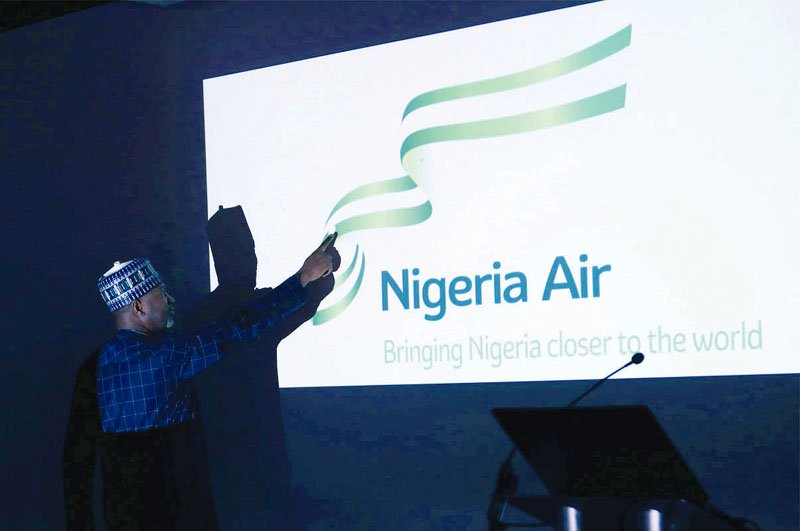Investigations in the aviation sector have revealed three factors frustrating the growth of Aviation industry in Nigeria. They include high cost of Aviation fuel popularly called Jet A1, multiple charges by government agencies and the current forex scarcity.
This scenario may have punctured the recent International Air Transport Association (IATA) forecast that due to low prices in oil, profit increased to about US$39.4billion in the sector globally.
But the situation seems different or clearly opposite in Nigeria as Nigerian aviation operators are in serious financial squeeze.
As global aviation fuel continue to maintain a steady low, the product in Nigeria has continued to increase and worse, for an oil-producing country there are a lot of instances where the product is simply unavailable.
Airlines now struggle to get forex to do their business, thus forcing some international airlines to reject Nigerian naira. The Emirates recently rejected naira in selling tickets for Brazil bound flight, thus forcing the authorities to call for a meeting of stakeholders on the way out.
As it stands now, Nigerian airlines carry out maintenance overseas (forex), buy or lease aircraft overseas (forex), import aircraft spare-parts from overseas (forex) but their charges are done in naira a currency currently spiraling against all other global exchange tenders.
These are some of the factors that made airlines under the aegis of Airline Operators of Nigeria (AON) to meet the Federal government to find a lasting solution for airlines so that they do not all go under like the airlines of the mid 2000s.
According to AON Chairman, Captain Noggie Meggison, “It is no longer news that airlines in Nigeria charge very competitive fares in local currency but have to carry out numerous operational activities including maintenance and purchase of spare parts in foreign currency (Dollars) thereby adding to the already unbearable burden the airlines have to carry on a regular basis.”
“And the current forex constraint being faced by airlines has further exacerbated the situation and threatening to cripple airline operations in the country.”
On rising taxation even in recession, it would be recalled that the Accident Investigation Bureau (AIB) commissioner, Dr. Felix Abali advocated for the increase of the bureau’s 3 per cent of the ticket sales charge to 10 per cent, stressing that paucity of funds had prevented the agency from carrying out its duties as a responsible accident investigator.
As of today the official Jet A1 price is between N145 and N150 but it is being sold to airlines at between N160-N170 coupled with its unavailability most times, things are really not looking bright for these airlines which also have infrastructural and other challenges to deal with.
An actual breakdown of what it cost the airlines with their various aircraft type to contend with their current reality is really not funny multiplied by the other factors that make it almost impossible to operate a daily flight.
The most widely used aircraft types on the Nigerian domestic operation are: Boeing 737 Classics (300/400/500 series), Boeing 737 NGs (700/800 series), MD 83 and each ha a unique fuel consumption cost of its own.
According to analysis the Boeing 737 Classics with CFM56-3 series engine type which takes an average of 120 passengers in all economy has average fuel consumption 2700kg/3375 litres per hour.
In Nigeria however, actual consumption is about 25 per cent higher due to operational delays (Holding, diversions, VIP movement, Traffic congestion, weather etc), hence actual fuel consumption per hour – 3375kg/ 4219 litres.
Price of Jet A1 today is approximately N 145 per litre so fuel cost for 1 hour flight is N 145 multiplied by 4219 litres equals N611, 755.00 and revenue from ticket sales assuming it reaches 70 per cent load factor (approximately 84passengers) at N 22,000 price equals 70 per cent multiplied120 passengers multiplied by N22, 000 equals N1, 848, 000 million. So percentage cost of fuel to total revenue equals N611,755.00/N1,848,000.00 approximately 33% for Jet A1 alone and that is not all too, as from that same N22, 000 ticket there is a Value added tax of N670, Sales Tax of N670, a Government surcharge of N5, 761, Airport Service Charge of N2, 000 and Terminal charge in the case of using the MMA2 of N3000 if travelling from Lagos. Simply put, the ticket charge of an average airline is N22, 000 give or take minus the charges of N12, 101 and you get about N9,899.00 then remove 25-35% fuel cost (Between N6, 000 and N7000) then add catering and for a one way ticket, the airline makes less than N5000.
Also note that these charges for a round trip are doubled like Taxes NGN1, 340: Value Added Tax (VAT), Taxes NGN 1,340: Sales Tax; Taxes NGN 11,522: Government Surcharge and Fees NGN 4,000: Airport Service Charge.
On the more fuel-efficient Boeing 737 New Generations with CFM56-7 series engine type and carrying an average of 140 passengers has average fuel consumption per hour of 1500kg/1875 litres.
However, actual consumption is also about 25 per cent higher due to operational delays, hence actual fuel consumption per hour is1875kg/ 2343.8 litres and now due to same Jet A1 price hike to N145 per litre fuel cost for an hour flight is N 145 X 2343.8 = N 339, 851
Revenue from ticket sales assuming 70 per cent load factor at N 22,000 price = 70%(98 seats) multiply 145 multiply 22,000 = N 2,156,000 million and so percentage cost of fuel to total revenue = 339,851/2,156,000 =15.8% seemingly okay for just fuel consumption but only one airline in Nigeria operates next-gen equipment.
Deducting the charges on the ticket excluding charges operating from the new terminal at N9101 and the airline gets approximately N12,899 this is aside catering and any other cost that may be incurred as taxes uncaptured here
For the Mc Donnel Douglas 83 aircraft with an engine type of JT8D-217 which takes an average of 140 passengers average fuel consumption per hour – 3640kg/4550 litres and with Jet A1 price at N 145 per litre fuel cost for 1 hour flight will equal N 145 multiply 3640 = N 659, 750
While revenue from ticket sales assuming 70per cent (98 passengers) load factor at N 22,000 price = 70%X145X22000 = N 2,156,000 million. This simply means that percentage cost of fuel to total revenue equals 659, 750/2,156,000 = 30 per cent fuel cost.
This alone amounts to N12, 101 and when subtracted from the Ticket of N22, 000 the airline only has N9, 899.00 as its own and this is excluding catering.









